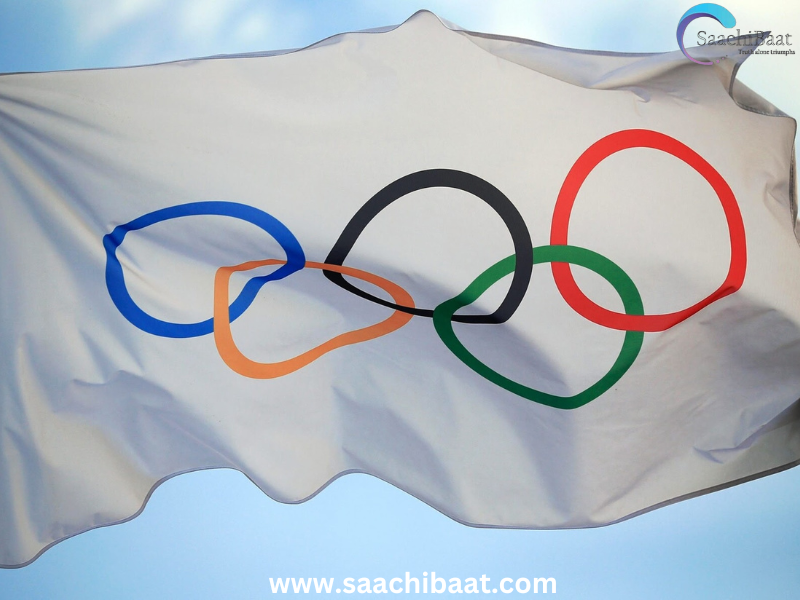The International Olympic Committee (IOC) reaffirms its strong position against the politicisation of sport. This position is a Fundamental Principle of the Olympic Charter, which says:
“Recognising that sport occurs within the framework of society, sports organisations within the Olympic Movement shall apply political neutrality. They have the rights and obligations of autonomy, which include freely establishing and controlling the rules of sport, determining the structure and governance of their organisations, enjoying the right of elections free from any outside influence and the responsibility for ensuring that principles of good governance be applied.”
The Olympic Charter also states:
“The mission of the IOC is to promote Olympism throughout the world and to lead the Olympic Movement. The IOC’s role is: (…) to oppose any political or commercial abuse of sport and athletes.”
These principles have been recognised and supported repeatedly by several resolutions of the United Nations (UN) General Assembly in recent years, including expressly “acknowledging the fundamental principles of the Olympic Charter” (A/RES/78/10 – Building a peaceful and better world through sport and the Olympic Ideal from November 2023).
These resolutions have also supported the leadership role of the IOC, in particular resolution A/RES/77/27 – Sport as an enabler of sustainable development, from November 2022, which said that the UN General Assembly “supports the independence and autonomy of sport as well as the mission of the International Olympic Committee in leading the Olympic movement and of the International Paralympic Committee in leading the Paralympic movement”.
Most of these resolutions have been adopted by consensus by all UN Member States with the exception being the most recent one, which was passed with abstentions only by the Russian Federation and the Syrian Arab Republic.
The IOC notes that, contrary to the Fundamental Principles of the Olympic Charter and the resolutions by the UN General Assembly, the Russian government intends to organise purely politically motivated sports events in Russia. The Russian government created and funded the “International Friendship Association” (IFA), in order to host the summer and winter “Friendship Games”.
Apparently, the first edition of the “Summer Friendship Games” is planned to be held in Moscow and Ekaterinburg, Russia, in September 2024, and the “Winter Friendship Games” in Sochi, Russia, in 2026.
For this purpose, the Russian government has launched a very intensive diplomatic offensive by having government delegations and ambassadors, as well as ministerial and other governmental authorities, approaching governments around the world. To make their purely political motivation even more obvious, they are deliberately circumventing the sports organisations in their target countries. This is a blatant violation of the Olympic Charter and an infringement of the various UN resolutions at the same time.
It is a cynical attempt by the Russian Federation to politicise sport. The IOC Athletes’ Commission, representing all the Olympic athletes of the world, clearly opposes using athletes for political propaganda. The Commission even sees the risk of athletes being forced by their governments into participating in such a fully politicised sports event, thereby being exploited as part of a political propaganda campaign.
The Russian government also shows total disrespect for the global anti-doping standards and the integrity of competitions. This is the very same government which was implicated in the systemic doping programme at the Olympic Winter Games Sochi 2014 and, later, the manipulation of anti-doping data.
Just last week, the World Anti-Doping Agency (WADA) expressed its “ongoing concerns about Russia’s plans to stage the Friendship Games, an unsanctioned event, in September 2024. In particular, it is of concern that as the event will not take place under the protection of the World Anti-Doping Code (Code), the health of and fairness for athletes may be compromised. WADA urges all Code Signatories to exercise caution and not legitimize this event as the Agency cannot vouch for the anti-doping program that may or may not be in place. This position is reinforced by the fact that Russia’s National Anti-Doping Agency (RUSADA) is currently non-compliant with the Code, there is currently no WADA-accredited laboratory in Russia and overall trust in the anti-doping system in Russia remains low.”
For all these reasons:
- the blatant violation of the Olympic Charter;
- the disrespect for the athletes and for the integrity of sports competitions;
- the Olympic Movement strongly condemns any initiative to fully politicise sport, in particular the establishment of fully politicised sports events by the Russian government.
The IOC strongly urges all stakeholders of the Olympic Movement and all governments to reject any participation in, and support of, any initiative that intends to fully politicise international sport.
××××××××××××××
Telegram Link :
For latest news, first Hand written articles & trending news join Saachibaat telegram group
https://t.me/joinchat/llGA9DGZF9xmMDc1


